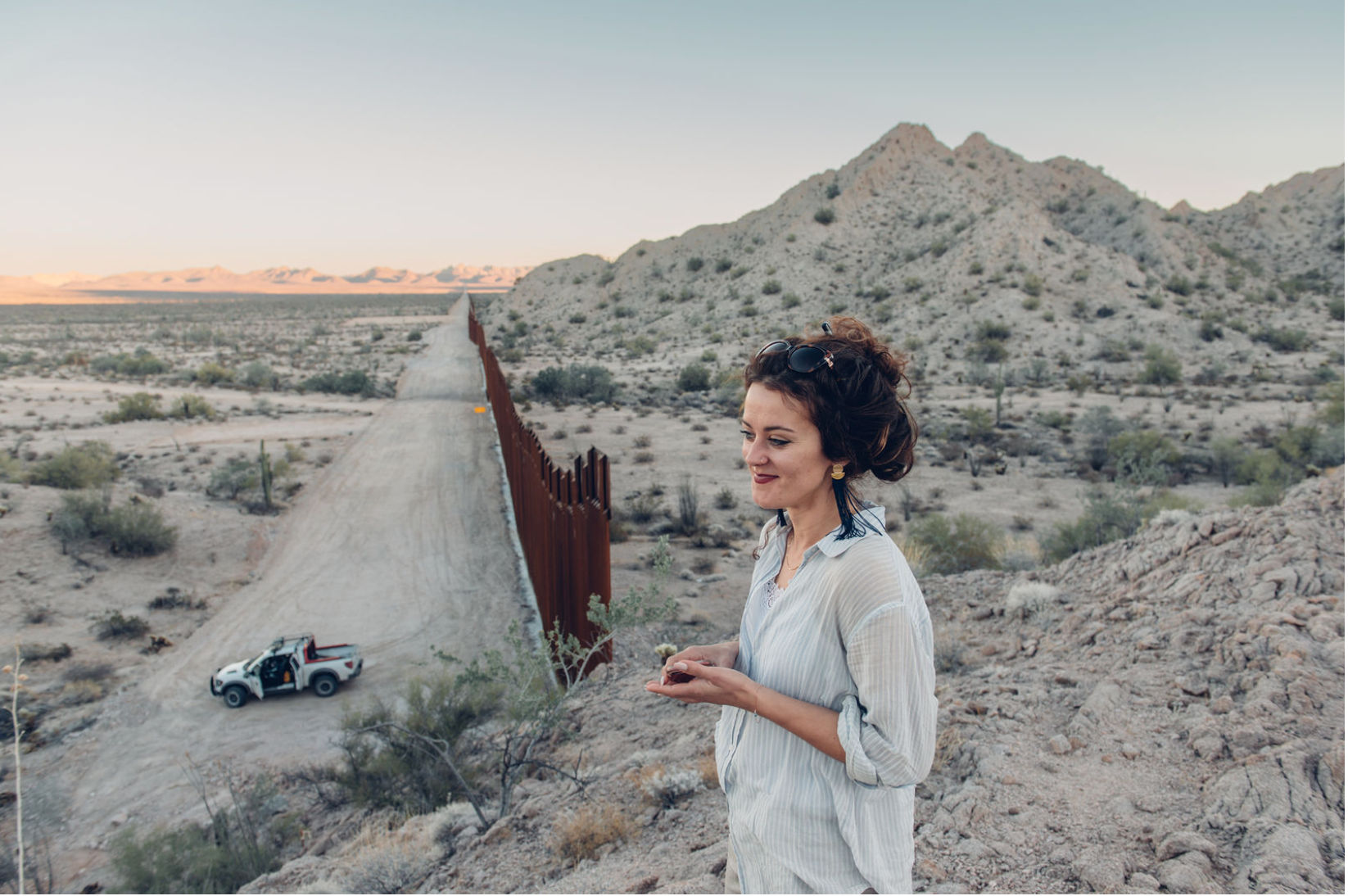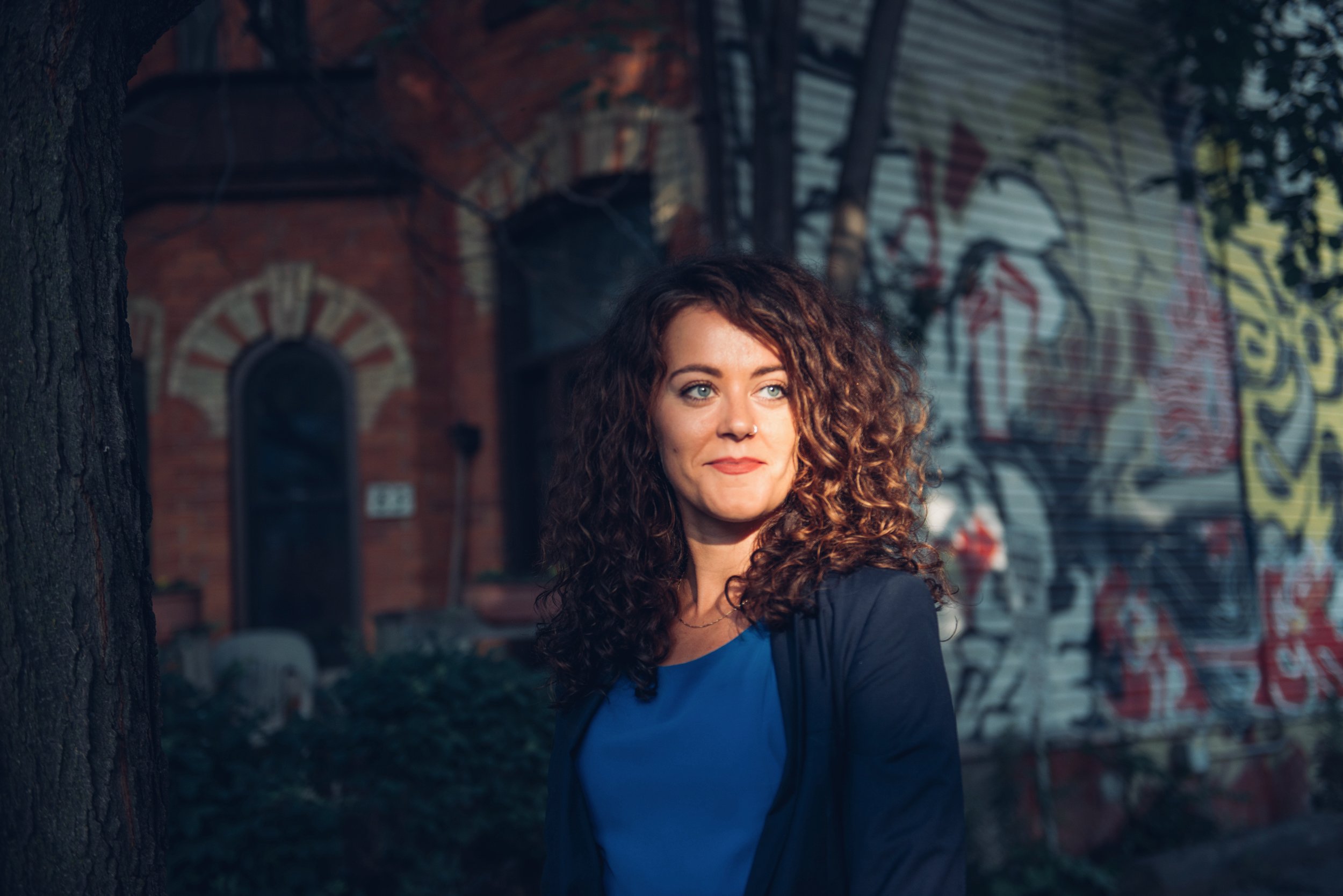
Petra Molnar is a lawyer and anthropologist specializing in migration and human rights.
A former classical musician, she has been working in migrant justice since 2008, first as a settlement worker and community organizer, and now as a researcher and lawyer. She writes about digital border technologies, immigration detention, health and human rights, gender-based violence, as well as the politics of refugee, immigration, and international law.
Petra has worked all over the world including Jordan, Turkey, Philippines, Kenya, Colombia, Canada, Palestine, and various parts of Europe. She is the co-creator of the Migration and Technology Monitor, a collective of civil society, journalists, academics, and filmmakers interrogating technological experiments on people crossing borders. She is the Associate Director of the Refugee Law Lab at York University and a Faculty Associate (and former Fellow) at the Berkman Klein Center for Internet and Society at Harvard University. Petra’s first book, The Walls Have Eyes: Surviving Migration in The Age of Artificial Intelligence, is published with The New Press in 2024.
formal bio
Petra is the author of numerous academic and popular press publications on technology and migration and one of the first and leading international voices on these issues. Her work has been widely featured in The Guardian, Al Jazeera, Time Magazine, and the New York Times, among others, and she is frequently quoted in international and local media as well as various policy briefings at the national and international level. Petra helped to draft the influential report on digital borders and racism by the UN Special Rapporteur on Discrimination, Racism, Xenophobia and Related Forms of Intolerance Professor Tendayi Achiume and a report on the human rights-based approach to digital border governance for the Office of the Human Rights Commissioner .
Petra is also the co-author of “Bots at the Gate,” an internationally recognized report on the human rights impacts of automated decision-making in immigration and refugee systems. Her recent report, Technological Testing Grounds, foregrounds the perspectives of people on the move in Greece and Europe as they interact with violent surveillance technologies.
Petra holds a Juris Doctorate from the University of Toronto Faculty of Law, a Masters of Anthropology from York University, Centre for Refugee studies, and an LL.M in International Law from the University of Cambridge.
The ‘How’ and ‘Why’ Behind my Work
A family meal © Petra Molnar
In order to tell global stories of power, violence, innovation, and contestation, I rely on the sometimes-uneasy mix between law and anthropology. It’s a slow and trauma-informed ethnographic methodology, one which requires years of being present in order to begin unraveling the strands of power and privilege, story and memory that makes up the spaces where people’s lives unfold. It is in this slow unpicking that the real impacts of borders come to light.
Trying to document systems of oppression is itself a risky business – one fraught with trying to unravel opaque decisions, secretive players, and witnessing horrific conditions on the frontiers challenging our common humanity. How does one carefully and critically document very real human rights abuses that are in their very nature sometimes difficult to see? Who is left out of conversations and who gets to participate in conversations around resistance, contestation, and world-building? At the heart of policies, technologies, laws, and decisions are always human stories.
Abandoned building in Northern Cyprus © Petra Molnar
Much of this work is deeply personal – my own migration and multi-hyphenated identity informs how I move through the world and how I hold the stories that I am told, while occupying a position of privilege as a practical academic, lawyer, researcher, and story teller. Storytelling and story sharing is always a deeply political act, one that I do not engage in without constant reflection and a recommitment towards building a world without violent border regimes.
A new world is possible. As Mariame Kaba, one of the most influential abolitionist writers remind us that ‘hope is a discipline.’ We can change the way we think about borderlands and the people who are caught at their sharpest edges.
“There’s really no such thing as the ‘voiceless.’ There are only the deliberately silenced, or the preferably unheard.”
Arundhati Roy



